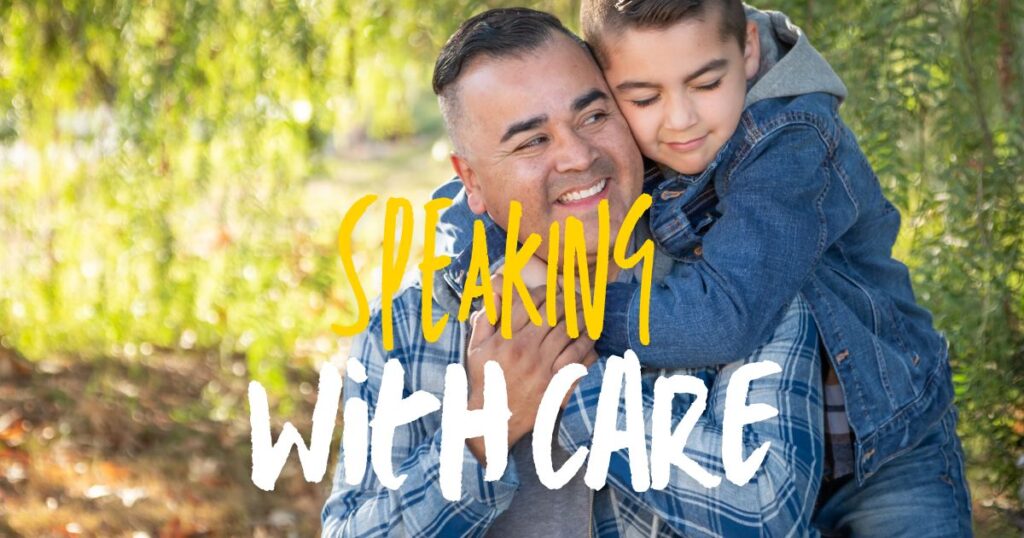Sometimes we don’t mean to hurt, but we do.
In our society, the role of a father is often idealized — sometimes to an impossible degree. We see images of strong, silent types; weekend warriors; or endlessly patient mentors. While many fathers strive to embody these ideals, and indeed, many succeed admirably, the reality is that fatherhood is a complex, challenging, and often imperfect journey. In the daily grind of providing, protecting, and guiding, even the most well-meaning fathers can, without realizing it, fall into patterns inadvertently causing harm to their children. These aren’t acts of malice or neglect, but rather subtle, often thoughtless, behaviors that, over time, can chip away at a child’s self-esteem, trust, or emotional well-being.
It’s easy to dismiss these as minor parenting infractions with thoughts that “they’ll get over it.” However, the cumulative effect of these seemingly small oversights can be profound, shaping a child’s perception of themselves, their relationships, and the world around them. Children, especially in their formative years, are incredibly perceptive and absorbent. They internalize the words, actions, and even the unspoken sentiments of their primary caregivers. A father’s influence, whether positive or negative, casts a long shadow, affecting everything from a child’s academic performance and social skills to their emotional resilience and future relationships. It’s not about assigning blame or shaming fathers; it’s about fostering awareness and promoting growth. Every father wants the best for their children, and understanding these potential pitfalls is the first step toward building stronger, more supportive relationships.
This blog post isn’t a critique; it’s an invitation to introspection and a chance to examine our own habits. It’a also an invitation to consider how we might be unintentionally affecting the most precious people in our lives. By shining a light on these often-overlooked behaviors, fathers can become empowered to make conscious adjustments, fostering environments where their children can truly thrive; feel loved; and develop into confident, well-adjusted individuals. Let’s explore some common, yet thoughtless, ways fathers may inadvertently hurt their kids — and, more importantly, how we can transform these patterns into opportunities for deeper connection and positive growth.
Dismissing a child’s feelings
It’s common for fathers, particularly when faced with a child’s strong emotions, such as anger, sadness, or fear, to offer quick fixes or dismissive remarks. Phrases like, “Don’t be a baby,” or “There’s nothing to cry about,” or “Just get over it” might be uttered with the best intentions, perhaps to encourage resilience or toughen them up. However, what a child often hears is that their feelings are invalid, unimportant, or even wrong. This can teach children to suppress their emotions, leading to difficulty in regulating feelings later in life, and an inability to trust their own emotional compass.
Instead, strive to be a safe harbor for your child’s emotions. When they express strong feelings, validate what they’re experiencing. A father could say, “I can see you’re really upset about that,” or “It sounds like you’re feeling frustrated.” This doesn’t mean you condone every behavior, but it acknowledges their internal experience. By listening without judgment and helping children name their emotions, you teach them emotional literacy and show them that their inner world matters. This builds a foundation of trust and allows them to feel safe bringing their whole selves to you, fostering healthier emotional development.
Constant criticism and comparison
While constructive feedback is essential for growth, a constant barrage of criticism or unfavorable comparisons can be incredibly damaging to a child’s self-esteem. Remarks such as, “Why can’t you be more like your sister?” or “You always mess that up,” erode a child’s sense of worth and can lead to anxiety, perfectionism, or a fear of trying new things. Children internalize these messages, and they can develop a core belief that they are not good enough — which can lead to a lifelong struggle with self-acceptance.
Shift your focus from highlighting flaws to acknowledging effort and celebrating progress, no matter how small. Instead of comparing them to others, compare them to their own past performance. Offer specific praise for their hard work, creativity, or perseverance. When feedback is necessary, deliver it constructively, focusing on the behavior, not the child’s character. For example, “Let’s try that again; remember to keep your eye on the ball” is more effective than, “You’re so clumsy; you’ll never hit it.” This approach fosters a growth mindset, encouraging them to see challenges as opportunities to learn and improve, rather than as reflections of their inherent worth.
Being an absent presence
In today’s fast-paced world, it’s easy for fathers to be physically present but emotionally or mentally absent. Whether it’s being glued to a phone, constantly working, or simply checked out during family time, an “absent presence” sends a powerful message to children: “You are not my priority.” While you might be in the same room, your child experiences a lack of connection, which can lead to feelings of loneliness, neglect, and a craving for attention they may seek in less healthy ways.
Make a conscious effort to be truly present when you’re with your children. This means putting away distractions, making eye contact, and engaging actively in their world. Dedicate specific time each day for focused interaction — even if it’s just 15 minutes of playing a game, reading a book, or talking about their day. Active listening, asking open-ended questions, and sharing your own experiences can bridge this gap. Your consistent, undivided attention communicates to your child that they are valued, loved, and important, building a strong emotional bond that fuels their sense of security and belonging.
Failing to model respectful relationships
Children learn by observing, and the way a father interacts with their partner (married or divorced), other family members, and even strangers sets a powerful example. If a father is disrespectful, dismissive, or uses harsh language in these relationships, children internalize this as an acceptable way to interact. This can manifest in their own social interactions, leading to bullying behaviors, difficulty forming healthy friendships, or a skewed understanding of what respectful relationships look like, impacting their future romantic partnerships.
Consciously model respectful communication and behavior in all your interactions. Show your children what healthy conflict resolution looks like by discussing disagreements calmly and finding compromises or agreeing to disagree in an honoring way. Demonstrate empathy, kindness, and patience towards others. Apologize when you make a mistake, showing them that it’s okay to be imperfect and to take responsibility for your actions. By demonstrating these values consistently, you provide a blueprint for your children to build their own respectful relationships, fostering empathy, kindness, and strong interpersonal skills that will serve them well throughout their lives.
Over-praising or over-protecting
While seemingly positive, both excessive praise and over-protection inadvertently can hinder a child’s development. Over-praising everything, regardless of effort or achievement, can lead to a false sense of accomplishment, a fear of failure, and an inability to handle constructive criticism. Similarly, overly protecting a child from any challenge or discomfort can stifle their independence, problem-solving skills, and resilience. They may grow up feeling incapable, anxious, or unable to navigate the inevitable setbacks of life.
Strive for balanced and specific praise acknowledging effort and process rather than just outcomes. Encourage your children to take calculated risks and allow them to experience natural consequences, within safe limits. This means stepping back and letting them try, and sometimes fail, recognizing that these experiences are crucial for learning and growth. Offer support and guidance but empower them to find their own solutions. By fostering a sense of competence and resilience, you equip your children with the confidence and skills they need to navigate the world independently, bounce back from adversity, and embrace new challenges with courage.
Being a father is one of life’s greatest privileges and responsibilities. It’s a journey of continuous learning, growth, and self-reflection. The five points above aren’t meant to shame or discourage, but rather to illuminate common, often unintentional, patterns that can inadvertently impact our children. By becoming aware of these thoughtless ways, we empower ourselves to make conscious choices that foster deeper connections, build stronger relationships, and nurture the incredible potential within each of our children.
You have the power to shape not just your child’s present, but their entire future. Every interaction, every word, every moment of presence is an opportunity to build them up, instill confidence, and guide them towards becoming resilient, compassionate, and thriving individuals. Embrace the challenge, be present, and lead with intention. Your children are watching, learning, and growing because of you. What an incredible gift — and what an incredible opportunity to be the father they truly need and deserve. You’ve got this.

